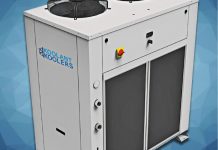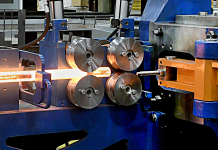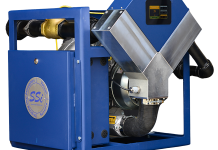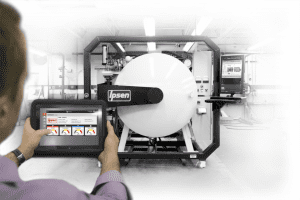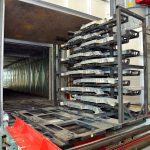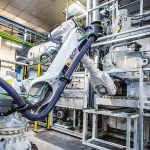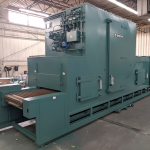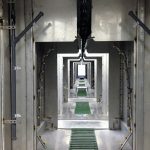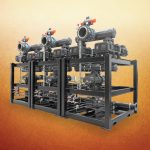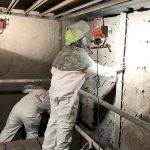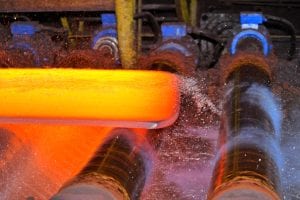Hardening of parts such as gears and other essential products made from stainless-steel alloys is a vital and necessary process to ensure those parts perform optimally.
Expanite, a company that was born from research at The Technical University of Copenhagen, has grown its innovative process of hardening stainless steel more efficiently than previous methods.
Besides the proprietary processes for stainless steel and titanium, Expanite offers specialty heat treatment solutions including hardening, tempering, solution treatment, aging, and annealing for nickel-based alloys such Monel®, Inconel® or Mu-metal, stainless steels, titanium, and other specialty materials.
“You can easily take stainless steel and put it in and harden it, but you lose corrosion properties right away if you don’t know how to do it,” said Claus Løndal, country manager North America with Expanite. “We do that without losing corrosion properties.”
The beauty of Expanite’s hardening process is it works with any stainless-steel alloy, according to Løndal.
“We can take all stainless-steel alloys — and I mean every stainless-steel alloy, as long as they are defined as stainless steel,” he said. “That means that it has to have around 12 percent chrome in the alloy. And we can harden them all. We can also harden some other alloys and titanium.”
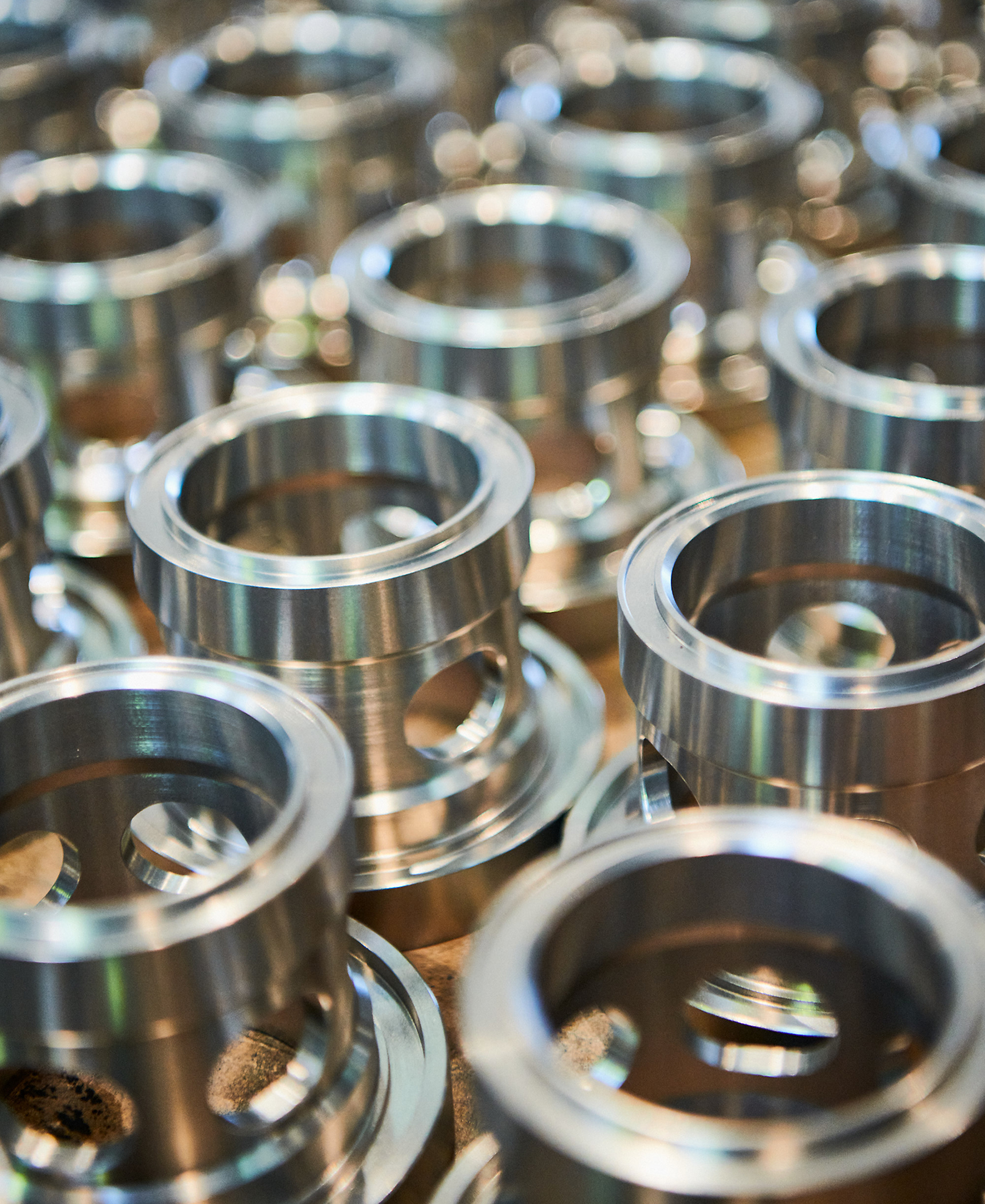
Hardening stainless steel
Stainless steel is an amazing material, according to Løndal, but it isn’t a very hard material.
“If you go out and — you probably have a refrigerator or a dishwasher that is a stainless-steel surface — and if you take a knife, you can scratch it, or you can scratch it with your fingers; that’s how soft it is,” he said. “We can harden it almost 10 times as hard as that in the surface. It’s a surface hardening of the material. Our advantage is that you don’t see a drop in corrosion properties after our process.”
Corrosion is a common problem when dealing with stainless steels, and — if not dealt with — can become a hazard for industries using food and beverage equipment or medical and aerospace sectors, according to Løndal.
“You don’t want your parts to corrode because, at some point, it will corrode so much that it goes to pieces,” he said.
Removing the oxide layer
Expanite’s innovative process is a gas-based diffusion technology that removes the oxide layer from the stainless steel, according to Løndal.
“The oxide layer comes automatically when you have an alloy where there is at least 12 percent chrome in the surface,” he said. “And when that chrome reacts to the environment and the air around it, it creates this oxide layer. That oxide layer is what prevents the part from corroding.”
If there is a lot of chrome present, then the oxide layer will be thick in relation to the part, although, in actuality, the layer is quite thin. If the alloy is heated — stainless steel 316, for example — the chrome will react with nitrogen to create chromium nitrites, according to Løndal.
“And those corrode right away,” he said.
During Expanite’s process, the oxide layer is stripped, diffusing nitrogen and carbon into the surface. Once cooled, Expanite makes sure there is enough chrome in the surface to again activate the oxide layer, according to Løndal.
“It’s a little simplified, but that’s in principle what we do,” he said. “We strip off the oxide layer, which diffuses nitrogen and carbon and creates a hardened zone. We have a patented technology to do this, and once it’s cooled down, the oxide layer is re-established.”
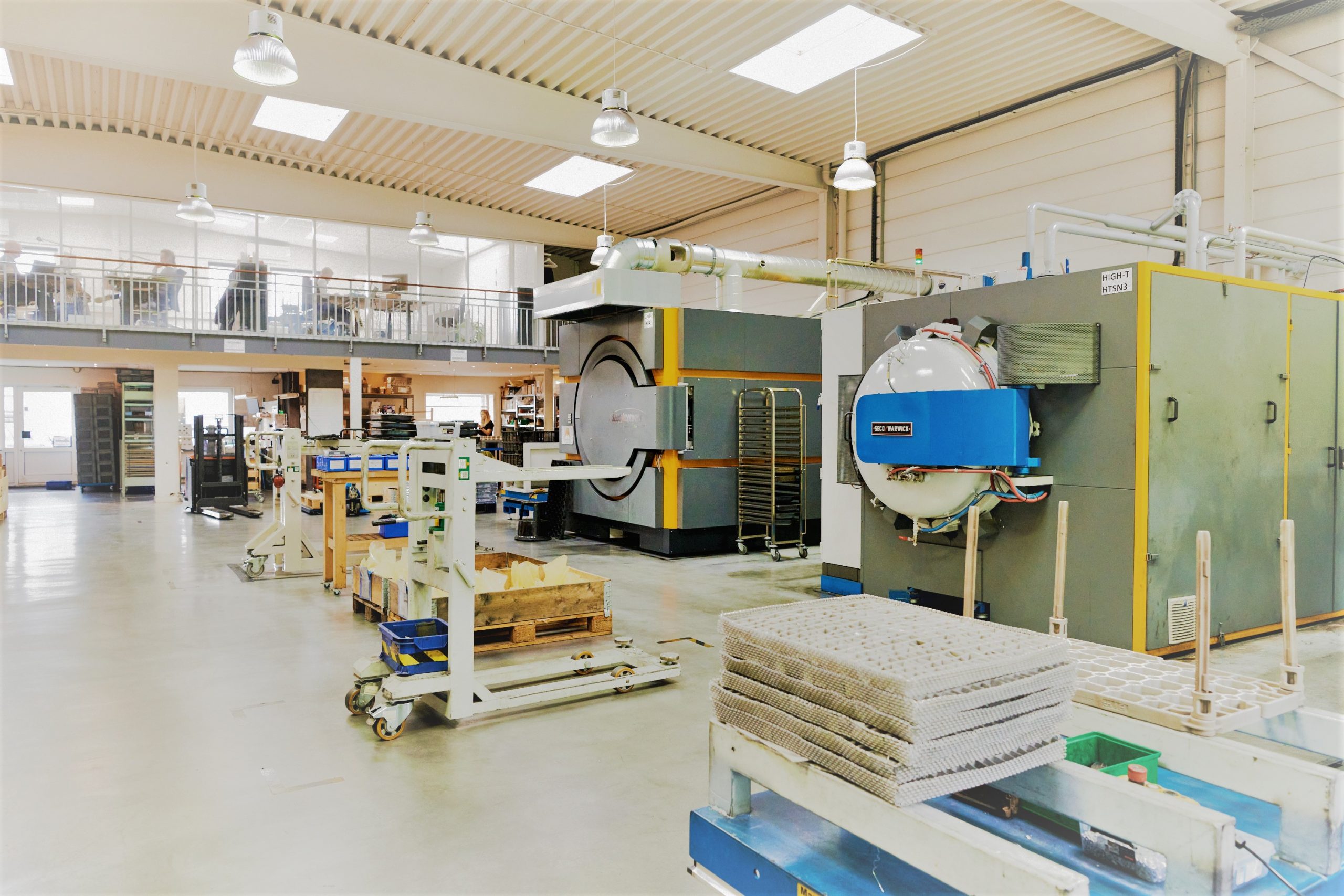
University roots
This patented process was the brainchild of a professor and two senior researchers from the University of Copenhagen, who were working from different angles of surface technology. The professor had a few start-up companies that were trying to pursue this technology to efficiently harden stainless steel without losing corrosion properties, according to Løndal.
“These guys here started out at the university, and they had a little room down in the basement,” he said. “At some point, something started working in the furnaces, and it worked so well that they managed to attract an equity fund that was working together with the university. It’s a fund that takes new innovative technologies and puts some money into it to see if it can grow and become more than just a startup, but actually a growth company at some point. So, the mission was clear: Give them some money, be around for some time, and then sell the company. With that money in the bank, we started the company. I was employee No. 4.”
The company was founded in 2010, but for the first two years, it was basically a one- or two-man band operation with a few students helping out. Eventually, a professional board was hired along with some sales representatives, according to Løndal.
Getting a patent
“The first thing that was done was we filed for patents in order to protect our technology,” he said. “It is fully patented more-or-less globally. Then we started moving on, and we established what still is our headquarters just north of Copenhagen in a small city called Hillerød where we have a lot of furnaces and R&D.”
From the beginning, the goal of Expanite has been clear: to make things hard, according to Løndal.
“We want to help people prevent wear based on that, because, since stainless steel is so soft, it wears down quite fast,” he said. “If you have a shaft, if you have a gear or a tooth, anything like that, it wears quite fast. We want to help our customers develop better and more sustainable parts that last longer.”

Replacing other processes
Expanite’s process could be an important evolution to how parts are made and made to last longer, according to Løndal.
“We can also use it on new applications. What kind of alternative do we have out there? In many cases, a lot of engineers have used different kinds of coatings,” he said. “It could be hard chrome plating, which is something that a lot of companies in a lot of countries are trying to get rid of, because hard chrome plating is quite toxic and you don’t want to have it. But the problem with coatings in general is that when you put it on that surface, that means it can chip off. Once you’ve got a small hole in that coating, water or the product it’s handling gets in under the surface, and then it’s really chipping up. And nobody wants hard chips in their ice cream or in their tomato juice or whatever they’re using.”
The process is also a good alternative to plasma nitriding, where poor corrosion properties are often seen, according to Løndal. Expanite’s hardening process also can be ideal for products such as gears and any kind of application where there are moving parts.
Quick turnaround
Over the company’s relatively short lifespan, the teams at Expanite have worked diligently to offer its customers its efficient hardening technology and ensure that their jobs are expedited as quickly as possible, according to Løndal.
“We are a heat treater; it’s advanced technology, but it’s still a heat treatment — that means that we are at the end of the food chain,” he said. “It’s finished parts. So, all the delays that have been in that chain from the engineers designing a part to the manufacturer actually producing the part and shipping it to us, all those delays are ending up at our place. So lead times are a very vital thing. We have a quick turnaround time. That’s very, very, very important for our customers, and we have the market’s best turnaround time; that’s for sure.”
Not one to rest on its laurels, Løndal said Expanite plans to continue to expand its technology in the coming years.
“Besides being the fastest and having the best product, we also actually have the best environmental footprint,” he said. “We are a heat treater. That means that we have to have power, but the gases we use are non-toxic. We don’t use any chemistry at all to do anything. We are very sustainable, and that is probably one of the things that we think will be a lot of focus on for the next years.”

Company expansion
Expanite might not be a household name yet, but Løndal said his company has customers within a myriad of industries. It’s already established in many industries, for example, food and beverage processing, oil and gas, pumps and valves, automotive, medical devices, and, ultimately, not so surprising, is the company’s involvement in the watch-making industry.
“We have what we call the watch industries — all kinds of watches,” he said. “You can imagine buying a very expensive watch. You always get them with these sapphire glasses, as the glasses are very hard, and scratch resistance is high, but the watch case itself is stainless steel, and it’s soft, so they want to have the watch cases hardened.”
Finding solutions for new industries is just part of what makes what Expanite do so exciting for Løndal.
“We like to be involved in our customers solving a problem and solving the technical issues of developing new fantastic equipment where we can be part of it,” he said.
MORE INFO xpanite.com/en









